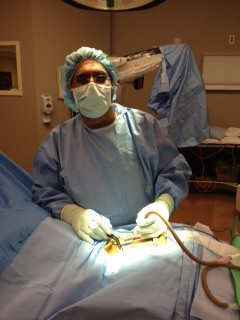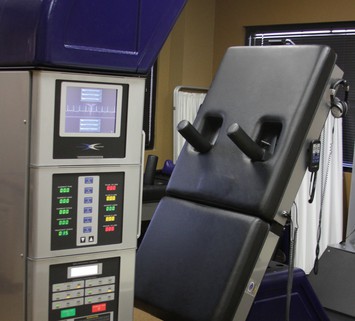Minimally invasive spine surgery (MISS) has garnered considerable attention for its potential to enhance patient outcomes. As medical technology continues to evolve, patients and healthcare providers are faced with the decision of choosing between conventional open surgery and the less invasive approach offered by MISS. In this article, we delve into minimally invasive spine surgery risks and benefits, helping patients who suffer from back pain make educated choices about their spine care.
What Conditions Might Require Spine Surgery?
Spine surgery may be required for a variety of conditions, including herniated discs, spinal stenosis, spinal fusion, fractures, scoliosis, spinal tumors, degenerative disc disease, spinal infections, spinal instability, failed back surgery syndrome, and other neurological conditions affecting the spine. These conditions can lead to symptoms such as pain, weakness, numbness, or neurological deficits, and surgery may be considered when conservative treatments fail to provide relief or when there's a risk of progressive neurological damage.
Surgical interventions aim to address the underlying cause of the condition, stabilize the spine, relieve pressure on nerves or the spinal cord, and improve overall function and quality of life. However, spine surgery is typically considered a last resort and should be carefully evaluated by a medical professional based on the specific condition, symptoms, and individual circumstances of the patient.
Spine Surgery Risks
Spine surgery, like any surgical procedure, carries inherent risks. These risks can vary depending on many factors, including the type of spine surgery, the patient's overall health, and the skill of the surgical team at the wheel. Some common risks associated with spine surgery include:
Infection
There is always a risk of developing a surgical site infection, which can range from mild to severe and may require additional treatment.
Bleeding
While rare, excessive bleeding during or after surgery can occur, potentially leading to complications that require further intervention.
Nerve Damage
Surgery on the spine involves working near delicate nerves, and there is a risk of damage to these structures, which can result in pain, weakness, or numbness.
Blood Clots
Prolonged immobility during and after surgery increases the risk of developing blood clots, which can travel to the lungs (pulmonary embolism) or other parts of the body, posing serious health risks.
Anesthesia Risks
General anesthesia is typically administered during spine surgery. While it is generally safe, there are risks associated with its use, including allergic reactions and adverse effects on the heart and lungs.
Instrumentation Failure
In some cases, hardware such as screws, rods, or plates used to stabilize the spine may fail or become dislodged, requiring revision surgery.
Failed Surgery
Despite the best efforts of the surgical team, spine surgery may not achieve the desired outcome, leading to persistent pain or other symptoms that require additional treatment or revision surgery.
Complications Related to Pre-Existing Conditions
Patients with pre-existing medical conditions such as diabetes, obesity, or heart disease may be at increased risk of experiencing complications during or after spine surgery.
It's important for patients considering spine surgery to thoroughly discuss the risks and potential complications with their healthcare provider and to weigh these factors against the potential benefits of the procedure. Additionally, choosing a skilled and experienced surgical team can help mitigate some of these risks and improve the likelihood of a successful outcome.
The Benefits of Minimally Invasive Spine Surgery
Minimally invasive spine surgery is an effective alternative to conventional open procedures, offering several benefits for patients. Some of those benefits include the following:
Reduced Tissue Damage
MISS techniques involve smaller incisions and less disruption to surrounding muscles and tissues compared to traditional open surgery, leading to reduced trauma and potentially faster recovery times.
Lower Risk of Infection
The smaller incisions and reduced exposure of internal tissues during MISS can lower the risk of surgical site infections compared to open surgery.
Quicker Recovery
Patients undergoing MISS typically experience shorter hospital stays, less physical therapy, and quicker recovery times compared to traditional open surgery, allowing them to return to their daily activities sooner.
Less Postoperative Pain
Minimally invasive techniques are associated with less postoperative pain and discomfort compared to traditional open surgery, potentially reducing the need for pain medication and improving overall patient satisfaction.
Reduced Blood Loss
MISS procedures generally result in a small amount of blood loss during surgery compared to open procedures, minimizing the need for blood transfusions and associated risks.
Preservation of Spinal Stability
Minimally invasive techniques allow for targeted access to the affected area of the spine while minimizing disruption to surrounding structures, potentially preserving spinal stability and reducing the risk of complications such as spinal instability.
Improved Cosmetic Outcome
The smaller incisions used in MISS techniques result in less visible scarring compared to traditional open surgery, offering a more favorable cosmetic outcome for patients.
Enhanced Accuracy
Minimally invasive surgical techniques often utilize advanced imaging technology, such as intraoperative navigation systems or robotic assistance, allowing for greater precision and accuracy during the procedure.
Reduced Risk of Muscle Damage
Minimally invasive approaches involve less disruption to muscles and soft tissues surrounding the spine, reducing the risk of muscle damage and postoperative muscle weakness.
Comparable Outcomes
Despite being less invasive, studies have shown that minimally invasive spine surgery can achieve comparable or even superior outcomes in terms of pain relief, functional improvement, and long-term patient satisfaction compared to traditional open surgery.
Minimally Invasive Spine Surgery with Texas Spine Center
Minimally invasive spine surgery (MISS) emerges as a promising solution for individuals seeking effective treatment for spine-related issues. With its potential to reduce surgical risks, minimize recovery times, and enhance overall patient outcomes, MISS represents a significant advancement in modern spine care.
At Texas Spine Care, our team of dedicated spine care experts is committed to providing top-notch care and utilizing state-of-the-art minimally invasive surgical techniques to alleviate back pain and improve the quality of life for our patients. Whether you're grappling with chronic back pain or exploring treatment options, we offer compassionate care and comprehensive solutions tailored to your needs. Don't let back pain hold you back any longer—contact Texas Spine Care today to embark on your journey towards a pain-free life with minimally invasive spine surgery. Visit our website to get started!



